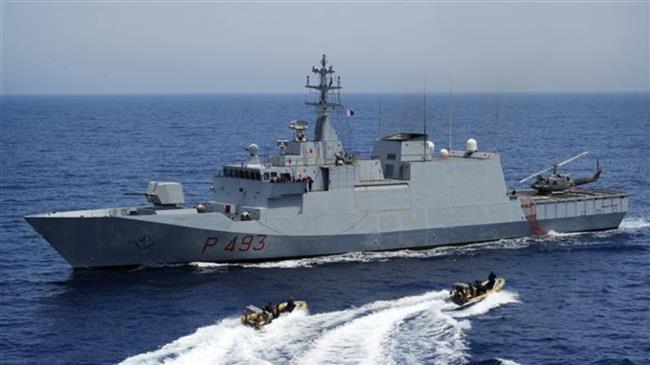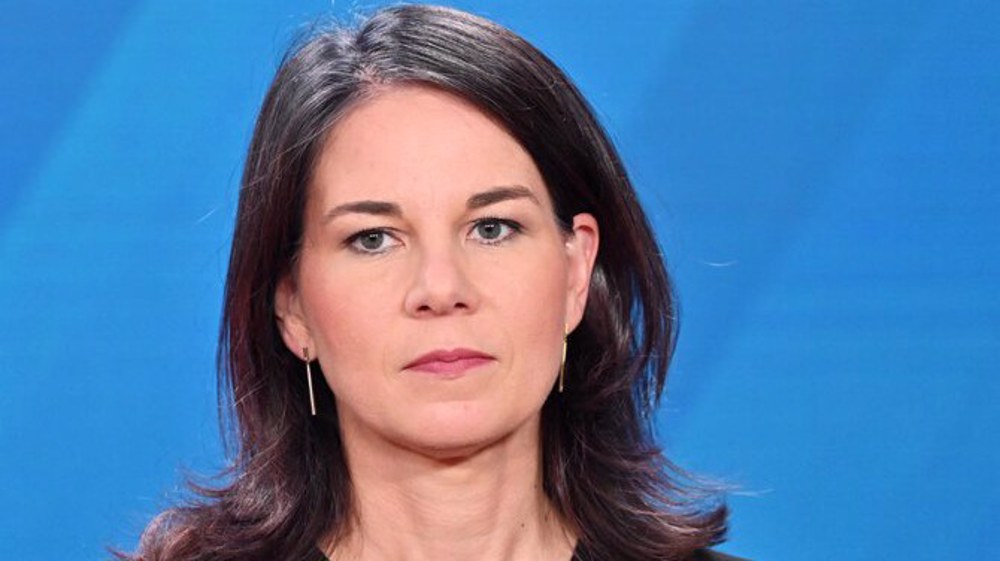Germany to build new warships amid push for EU army
Germany says it plans to build at least four new multi-role warships worth nearly 6 billion euros in an effort to increase its military capabilities.
The announcement comes amid a brewing dispute between the US and the Europeans over military spending by NATO members.
The Trump administration has been pressuring Germany and other European members to raise their military budget and contribute more towards the cost of the alliance.
Germany has announced to increase military spending by more than 5 billion euros this year to 47.32 billion euros, the biggest rise since the end of the Cold War.
The issue has pitched Chancellor Angelina Merkel’s Christian Democrat party (CDU), which favors higher military spending, against its Social Democrat (SPD) coalition partners who are opposed.
US President Donald Trump is pushing for more increases to meet a target of spending 2 percent of economic output on military by NATO members.
Implicit in Trump's pressures is his aggressive drive to arm-twist allies into buying more US-made weapons.
However, the new German warships will be built by Dutch shipyard Damen in association with its Bremen-based partner Luerssen, with the first planned to be delivered in 2027.
The German armed forces Bundeswehr said they will be able to attack targets on land and under water, and provide air cover for other vessels.
The contract includes an option to build two additional MKS 180 warships, Bundeswehr said, adding that about two-thirds of the production will take place at Luerssen’s shipyards in northern Germany.
“The decision for the MKS 180 to be mainly built by the Luerssen Group and thus in Germany is a good decision which strengthens Germany as a marine and shipyard location,” Merkel's chief budget lawmaker Eckhardt Rehberg said.
The ship tender is one of Germany’s biggest arms projects, along with a contract for the MEADS missile defense system and the new Franco-German fighter jet (FCAS).
Other companies interested in the MKS 180 warship tender are ThyssenKrupp and German Naval Yards.
Damen said its alliance also included Hamburg-based Blohm+Voss shipyard and France’s Thales. It estimated that about 80% of the tender’s net investment would remain in Germany.
Merkel and French President Emmanuel Macron have called for an integrated European Union military, which has infuriated President Trump.
“The times when we could rely on others are over. This means we Europeans have to take our fate fully into our own hands,” Merkel has said, adding “We should work on a vision of one day establishing a real European army.”
The idea, first floated by Macron, drew an angry reaction from Trump who mocked France over its near defeat to Germany in two world wars and accused the French president of seeking to develop the EU’s own military to defend itself from the US.
Last month, Trump approved a colossal military bill that authorizes a topline of $738 billion for fiscal year 2020.
The bill grants a base budget of $658.4 billion and an additional $71.5 billion for overseas contingency operations funding, also known as the war budget.
The push for an integrated European military comes as the EU is searching for answers to a US president who views the EU with contempt.
Last November, Macron raised hackles when he warned European countries that they can no longer rely on America to defend NATO allies.
“What we are currently experiencing is the brain death of NATO,” Macron declared in a blunt interview with The Economist.
Europe stands on “the edge of a precipice” and needs to start thinking of itself strategically as a geopolitical power; otherwise we will “no longer be in control of our destiny,” he said.
Trump lashed out at Macron, saying the French president’s description of NATO as brain dead was insulting and a “very, very nasty statement”.
VIDEO | ICC's arrest warrant for Netanyahu to worry Western politicians: Former British diplomat
Iranians protest against Israel after Netanyahu ICC warrant
Germany undecided on complying with ICC arrest warrants for Israeli war criminals
VIDEO | Former FBI agent criticizes US Congress for 'outright corruption'
IRGC chief urges Muslim countries to cut aid routes to Israel
'New chapter in cooperation': Iran, Venezuela sign new MoUs
Jordan sentences former lawmaker for supporting Palestinian resistance
Basij volunteer forces hold massive drills in southwestern Iran











 This makes it easy to access the Press TV website
This makes it easy to access the Press TV website